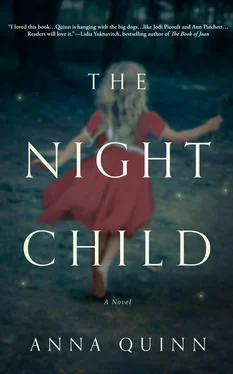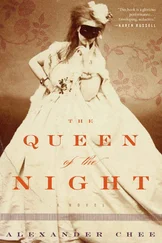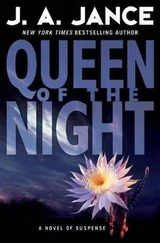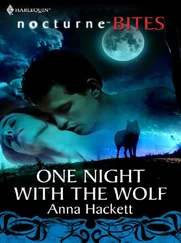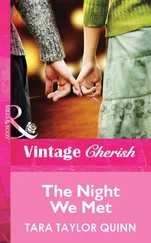Silence.
She knows what she should say; she should tell David that sometimes her mother would shriek at her and how if she tried to run her mother would grab her, throw her down, bring her hand hard across her cheek, how the force of the slap sent her reeling against walls and furniture, how sharp and shocking those things felt against her body. She should have told him how her mother pulled her hair out, how she had wanted her mother to die.
Instead she says, “She was sick. She was sad.” Nora reaches for the raven pillow, places it on her lap, and clenches her hands together on top of the bird’s beak. “An alcoholic.”
“Nora,” he says in an overtly gentle tone, “Did she hurt you?”
She focuses on the oak shelves overflowing with books: Cognitive Behavioral Therapy , Feeling Good: The New Mood Therapy , Mental Health or Mental Illness? , Stations of the Mind , The Diagnostic and Statistical Manual of Mental Disorders , Foundations of Psychology , In a Different Voice , Society’s Betrayal of the Child—
“Being an alcoholic doesn’t mean you have the right to hurt your children,” he says.
“I don’t see any Freud, any Jung,” she says, still staring at the books. “Kind of weird.”
“I have a complicated relationship with them,” he says. “I just think overgeneralizing about what’s masculine and what’s feminine is slippery, you know? The perpetuation of gender myths—but Nora, did you hear what I said? Your mother didn’t have the right to hurt you.”
“I get why you might not have Freud; the penis-projection theory pisses me off, but I mean, would you even be here without his whole face-to-face talk-therapy thing? It just seems like you’d have at least one book—” “Nora, is this really what you want to talk about?”
“You don’t think it’s important I know what you believe when it comes to the psyche? Seriously. Isn’t it a good thing we’re aware of archetypal images and confront our feminine and masculine selves? Correct the fucking patriarchal consciousness? And what about how he dared to face the unconscious self? Jesus. How can you as a therapist not have a book on Jung?”
“Like I said, I have a complicated relationship with him. I just don’t happen to think consciousness has a gender. And it seems a tad misogynistic to me that when he wrote about feminine qualities they were always tied to inferiority.”
She had forgotten this and wonders why, because it is something she should have remembered. Maybe it’s because of all the stress of remembering things in here—makes it hard to think clearly. Whatever—she is glad they’re talking about Jung instead of her mother.
“I had a high school science teacher who praised me once for thinking like a guy, and it really pissed me off,” she says.
He leans down to get his Stanley thermos. Unscrews the attached cup and puts it between his knees while he unscrews the black cover on top of the thermos. He pours coffee into the cup, screws the cover back on, and sets the thermos under his chair. He sips the coffee and says, “I see a lot of people in my practice, and I’m hard-pressed to come up with generalizations based on gender. Women who are assertive and driven should not be called masculine, and men who display passivity or emotion should not automatically have their masculinity questioned. Totally damages self-esteem.” He takes another sip of coffee. “And there’s plenty of new research to support that what is thought of as masculine or feminine is actually culturally determined.” He leans back into his chair.
She thinks then of how much her father hated when James cried. How much he hated when James played dolls with her. How, when James wanted to be a pink tulip for Halloween, her father said, “ No son of mine is going to be a goddamn pansy .”
“Nora, could we get back to your mother before the time is up? You heard me say your mother had no right to hit you, right?”
She looks at the clock and sees there’s ten minutes left in the session. Ten minutes is a very long time, especially now that he’s gone back to talking about her mother. “Yes. I heard you and I know that,” she says and tosses the raven pillow off her lap. She stands and plucks her coat from the coat rack.
“Nora, what’s going on for you right now?” He sits on the edge of his chair with his hands wrapped around his cup.
She faces him, struggling to put her coat on. “What about this don’t you understand? I SAW A FACE. I HEARD A VOICE.” Her voice is louder than she wants it to be, which alarms her. The tension between past and present makes her want to grab the raven pillow and shove it down his throat.
“We’re just connecting the dots,” he says.
She buttons her coat. Stares at the black buttons. Closes her eyes. Dots. In her mind, the dots crowd together and she is a dot and there are so many dots crowding her, too many dots and the dot of her has disappeared in the oppressive mud of dots that stinks like shit and there’s no place to breathe and the mud has already swallowed her. This is why she probably needs medication.
“Sit down, Nora,” he says. “Please. Sit down.”
She opens her eyes and stares at him until her eyes are focused again. She can see by the expression on his face, half alarmed and half sympathetic, he has doubts. “I need to go home,” she says, more to herself than to him, and flies out the door. Running home she tells herself things: You are fine and This too will pass, and by the time she arrives home she almost believes it.
“Mommy’s home!” Fiona yells from the front door. She’s wearing her red wool jacket and red rubber boots. Her face scrunched pink with worry and anger, her arms folded. “Mommy! Did you forget about the Christmas tree?”
Paul stands in the doorway, tense and upset, glaring at her as if she were a problem child.
“You’re late,” he says. She doesn’t know what time it is, but she can’t be more than ten or fifteen minutes late.
“We’ve been waiting for over an hour,” he says.
“A whole hour!” Fiona says.
“Geez, I’m sorry,” Nora says, shocked to find out about the time. She’d taken the scenic route, walked along the waterfront to calm herself. She’d needed the ocean smell, the rush of salty wind on her face, but it couldn’t have taken an hour. Unsure of what to say or do, she bends down to put Fiona’s hood up and tie it snugly.
“Stop, Mommy! That’s too tight!” Fiona protests, pulls Nora’s hands off the hood strings, gives her mother a frightened glance.
“It’s not that cold,” Paul says, tightly. “She doesn’t need a hood.”
The clouds are heavy with snow, and the tips of Nora’s fingers sting, but she holds her tongue. She stands and drops her hands to her sides, feeling stupid and alien, as if she doesn’t live in this house, as if this isn’t her daughter or her husband. Fiona bites her lip, says, “You’re the worst mom ever.”
Nora’s heart stalls. Her cheeks redden. She resists the urge to crumple. She takes a deep breath and stares at Fiona, stares at her until she knows what to say next. Fiona glares back, fists clenched, says, “The worst,” but then her eyes well up with tears.
“Oh, sweetheart,” Nora says, filled with tenderness for her daughter. She bends down, takes Fiona’s mittened hands in hers, kisses her wet cheeks, her long eyelashes. “Honey, I am really sorry I’m late. Really sorry.” Nora kisses her little cold nose, the tiny bone of it, says, “Sometimes mommies mess up, make mistakes. But listen! We’ve got hours until it’s dark! Let’s go get that tree! Let’s get a huge one!”
Читать дальше
